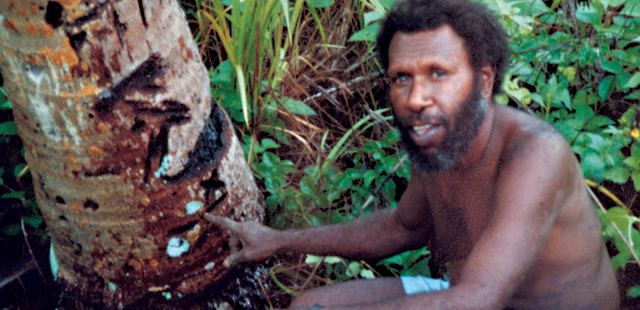Te korekore i takea mai, ki te po te kitea.
Te po tangotango, po whawha, po namunamu . . .
Ki te whei ao, ki te ao marama.
Tihei wa mauriora!
Tihei wa mauriora!
Kai Tahu sold themselves short when they "settled" with the Crown. Te Wai Pounamu was never "Terra Nullius".
 |
| Koiki Edward Mabo |
In 1879, the majority of the islands in Torres Strait were annexed to Queensland, by Letters Patent from London, and by an Act in the Legislative Assembly in Brisbane. Torres Strait became part of Queensland after Britain declared ownership on the basis of the legal concept of terra nullius, effectively declaring that there was nobody there when the British arrived, despite the clearly apparent fact that there were people living there, and some of the ancestors of those people had been living there for around sixty thousand years.
On 3 June 1992 the High Court of Australia delivered the historic decision formally known as Mabo v Queensland (No 2) ("Mabo case") [1992] HCA 23; (1992) 175 CLR 1 (3 June 1992), thereby establishing indigenous rights and successfully challenging the notion of compulsory colonisation and automatic acquisition by way of declaration of terra nullius. The decision is vitally relevant to all indigenous people of the Earth.
The transcripts of the hearing are well worth reading and can be accessed via the website of the Australian Legal Information Institute.
The court challenge was initiated and spearheaded by Koiki Edward Mabo, but he died four months before the decision was issued. He is forever immortalised by the landmark decision of the High Court, and his family and his people.
The High Court held that the doctrine of terra nullius, which imported all laws of England to a new land, did not apply in circumstances where there were already inhabitants present – even if those inhabitants had been regarded at the time as "uncivilized". Consequently, the Court held that the rules of reception of international English law that applied were not those applicable where the land appeared barren and unprotected, but rather the rules that applied where an existing people were settled.
The result was that existing customary laws which were present at the time of settlement survived the reception of English law to the extent not modified or excluded by subsequent inconsistent laws and acts of the British. Relevantly, that existing law included indigenous land title. As such, any Indigenous land rights which had not been extinguished by subsequent grants by the Crown continue to exist in Australia.
In so ruling, the High Court overturned Milirrpum v Nabalco Pty Ltd,[2] a contrary decision of the Supreme Court of the Northern Territory.
The writer has a close personal connection to the people and the whenua of the islands of the Torres Strait and the images reproduced here are done so out of respect and the need to educate our children about our history, and our heroes.
We request that the images here are viewed with respect, they are taonga, and tapu.



No comments:
Post a Comment